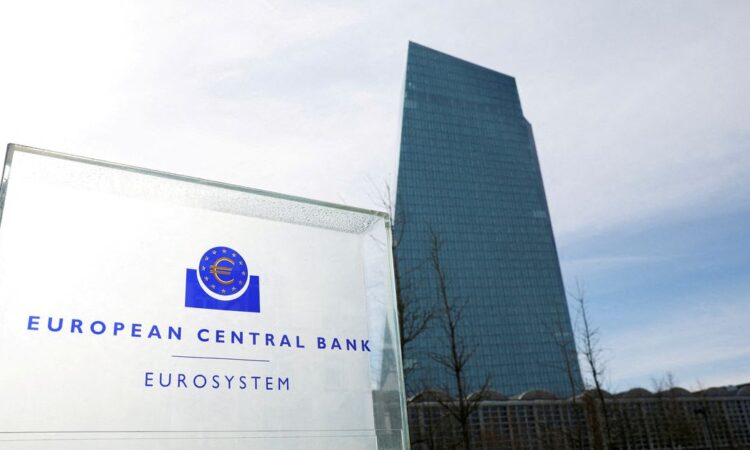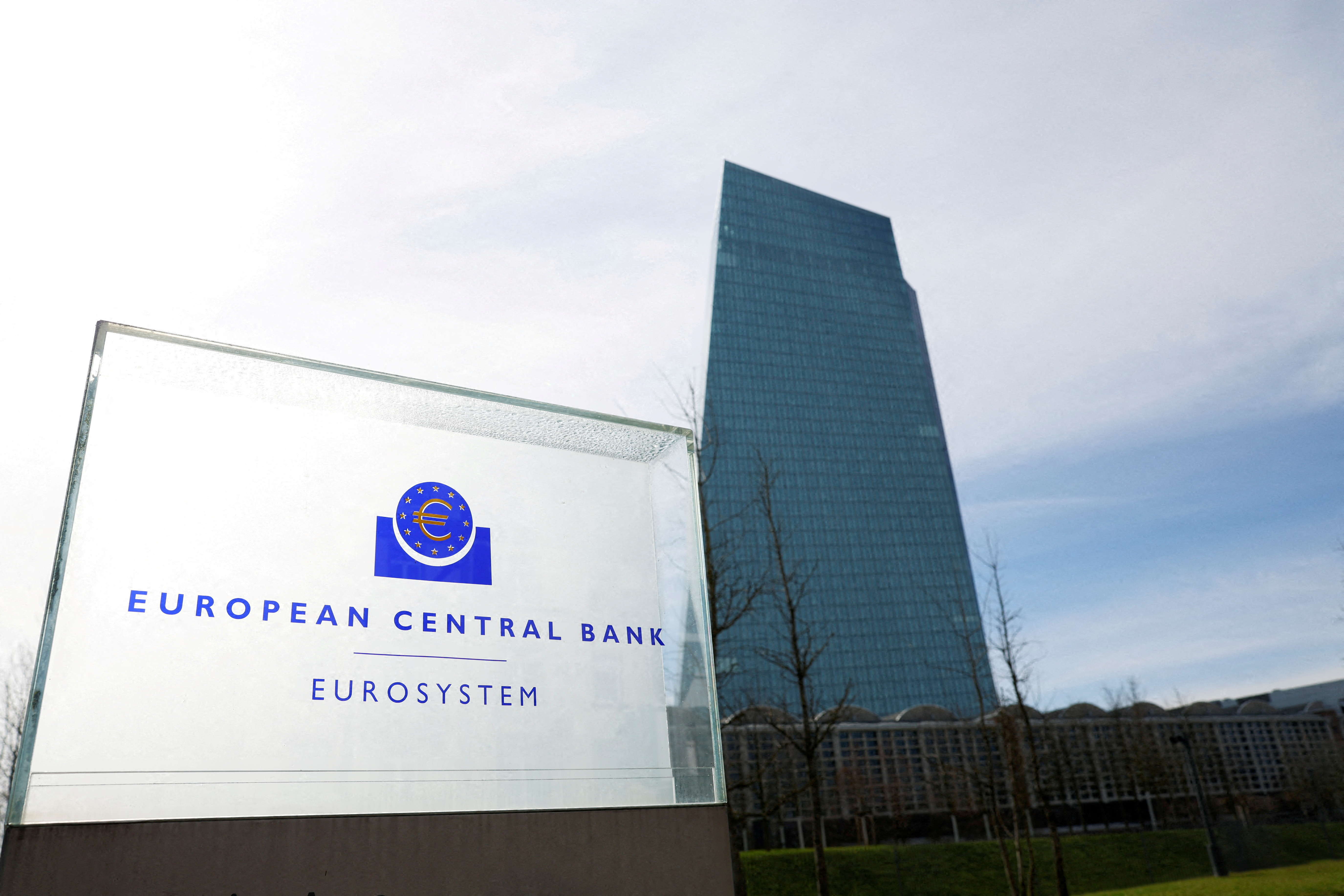

A view shows the logo of the European Central Bank (ECB) outside its headquarters in Frankfurt, Germany March 16, 2023. REUTERS/Heiko Becker/File Photo Acquire Licensing Rights
FRANKFURT, Nov 2 (Reuters) – The European Central Bank is on track to push inflation back down to 2% by 2025 but the “last mile” of disinflation may be the toughest, so the bank cannot yet close the door on further rate hikes, ECB board member Isabel Schnabel said on Thursday.
The ECB this month snapped a streak of 10 straight rate hikes after lifting its key rate at a record high 4% and discussion is now shifting to just how long borrowing costs will have to remain high.
“With our current monetary policy stance, we expect inflation to return to our target by 2025,” Schnabel said in a speech at an event organised by the Federal Reserve Bank of St Louis.
“However, the disinflation process during the last mile will be more uncertain, slower and bumpier,” she said. “This also means that we cannot close the door to further rate hikes.”
Inflation needed just a year to fall to 2.9% from 10.6% but getting down to 2% will take about twice as long and several factors could stall or even reverse the process, Schnabel said.
Energy is one of the key risks. It is now weighing on price growth as high year-earlier figures are replaced by low readings. However, this “base effect” will wane over time and could even reverse given the sharp rise in energy costs since June.
“Should energy prices over the coming months increase in line with their historical mean, energy is estimated to add nearly 1.9 percentage points to euro area headline inflation by July 2024,” Schnabel added.
Conflict in the Middle East or events such as the recent gas pipeline leak in the Baltic Sea could all trigger the sort of shock that adds to inflation.
Another issue is that monetary policy may be less effective than in the past.
The share of services in economic output has increased over time and higher borrowing costs have a lower impact on activity in this sector.
“Monetary policy transmission may therefore be weaker, or less direct, than in the past, which may lengthen the disinflation process,” Schnabel said.
Persistent labour shortages are another issue that will challenge the ECB.
The continued fall in inflation will require a moderation in wage growth but low unemployment increases workers’ bargaining power, Schnabel added.
“Our indicators, especially those tracking recently signed wage agreements, point to continued strong wage growth at a time when inflation is already falling,” she said.
For disinflation to proceed, wage growth has to slow and corporate margins must absorb some of the labour cost increase.
Reporting by Balazs Koranyi; Editing by Lincoln Feast.
Our Standards: The Thomson Reuters Trust Principles.





